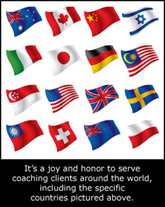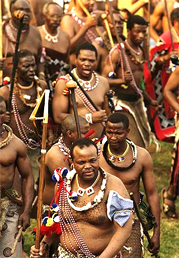 Country profile: Swaziland
Country profile: Swaziland
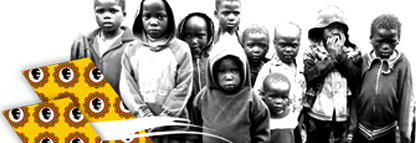
INTRODUCTION
The SADC Pharmaceutical Business Plan 2007-2013 aims at ensuring availability of essential
medicines, including African traditional medicines, in order to reduce disease burden in countries.
Within this context, Swaziland has collaborated with WHO in the collection and analysis of data on
it's pharmaceutical situation. This information will be used as a baseline before embarking on the
implementation of the Pharmaceutical Business Plan, and will be used: to take stock of the
pharmaceutical situation and identify areas in need of strengthening and support; to compare
results with those of other countries fostering a sharing of experiences and enabling identification of
strengths and opportunities for cooperation; and to measure over time the impact of the support
provided by the SADC Secretariat, WHO and other partners.
The kingdom of Swaziland is one of the world's last remaining absolute monarchies.
Its king rules by decree over his million subjects, most of whom live in the countryside and follow
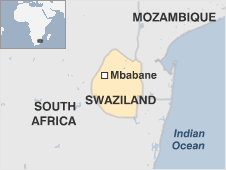 traditional ways of life.
traditional ways of life.
The power of the throne, however, has not gone unchallenged.
Overview
King Mswati III, on the throne since 1986, is upholding the tradition of his father, King Sobhuza II, who reigned for almost 61 years and had scores of wives.
 |
AT-A-GLANCE
Politics: King Mswati III - on the throne since 1986 - rules by decree and says the country is not yet ready for multi-party politics
Economy: Thousands have lost their jobs as garment and sugar export industries have lost trading concessions
International: Swaziland has diplomatic ties with Taiwan rather than China
|
King Sobhuza scrapped the constitution in 1973 and banned political parties.
King Mswati has shown no enthusiasm for sharing power, but banned opposition parties and trade unions have been vocal in their demands for greater democracy and limits on the king's power.
With peaceful change in neighbouring South Africa and Mozambique, Swaziland has been described as an island of dictatorship in a sea of democracy. Royalists have argued that democracy creates division, and that a monarch is a strong unifying force.
A long-awaited constitution, signed by the king in 2005 and introduced in 2006, cemented his rule.
Swaziland is virtually homogenous, most of the population being of the same tribe. Economically, it relies on South Africa, which receives almost half of Swazi exports and supplies most of its imports.
Many Swazis live in chronic poverty and food shortages are widespread. Aids is taking a heavy toll with more than 40% of the population believed infected with HIV. The virus has killed many workers and farmers and has created thousands of orphans. Life expectancy has plummeted.
Facts
- Full name: The Kingdom of Swaziland
- Population: 1.1 million (UN, 2009)
- Capital: Mbabane
- Area: 17,364 sq km (6,704 sq miles)
- Major languages: Swazi, English (both official)
- Major religions: Christianity, indigenous beliefs
- Life expectancy: 46 years (men), 45 years (women) (UN)
- Monetary unit: 1 Lilangeni = 100 cents
- Main exports: Sugar, wood pulp, minerals
- GNI per capita: US $2,520 (World Bank, 2008)
- Internet domain: .sz
- International dialling code: +268
Leaders
King: Mswati III
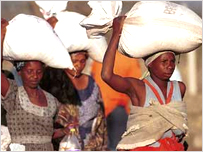
Women carry bags of food home near Magomba, Swaziland
|
King Mswati III was crowned in 1986 at the age of 18, succeeding his long-serving father King Sobhuza II, who died at the age of 82.
The king, who is known as Ngweyama - "the lion" - often appears in public in traditional dress and has many wives.
He rules by decree and has been criticised for the heavy-handed treatment of opponents. The king has also been criticised for requesting public money to pay for new palaces, a personal jet and luxury cars. Street protests led him to abandon the aircraft purchase.
Media
State control of the media is strong. The government controls all radio and TV stations with the exception of a Christian radio station.
Freedom of expression in the press is seriously restricted. Media watchdog Reporters Without Borders says the sole private daily is largely given over to "news trivia, entertainment and sports". "Criticising the king is inconceivable," it adds.
The press
Television
- Swazi TV - operated by state-run Swaziland Television Authority
Radio
AFRICA | ASIA-PACIFIC | AMERICAS | EUROPE | MIDDLEEAST | SOUTHASIA



Mauritania Mauritius Morocco Mozambique Namibia Niger Nigeria Republic-of-congo Rwanda Sao-tome-and-principe Senegal Seychelles Sierra-leone Somalia South-africa Sudan Swaziland Tanzania The-gambia Togo Tunisia Uganda Australia Brunei Burma Cambodia China East-timor Fiji Indonesia Japan Kazakhstan Kiribati Kyrgyzstan Laos Malaysia Marshall-islands Micronesia Mongolia Nauru New-zealand North-korea Palau Papua-new-guinea Samoa Singapore Solomon-islands South-korea Taiwan Tajikistan Thailand The-philippines Tonga Turkmenistan Tuvalu Uzbekistan Vanuatu Vietnam Antigua-and-barbuda Belize Bolivia Brazil Canada Chile Colombia Costa-rica Cuba Dominica Dominican-republic Ecuador El-salvador Grenada Guatemala Guyana Haiti Honduras Jamaica Mexico Nicaragua St-kitts-and-nevis St-lucia Suriname Trinidad-and-tobago Uruguay Venezuela Albania Andorra Armenia Austria Azerbaijan Belarus Belgium Bosnia-hercegovina Bulgaria Croatia Cyprus Czech-republic Denmark Estonia Finland France Georgia Germany Greece Hungary Iceland Ireland Italy Latvia Liechtenstein Lithuania Luxembourg Macedonia Malta Moldova Monaco Montenegro Norway Poland Portugal Russia San-marino Serbia Slovakia Slovenia Spain Sweden Algeria Egypt Iran Iraq Israel-and-palestinian-territories Jordan Kuwait Lebanon Libya Mauritania Oman Saudi-arabia Sudan Syria Tunisia United-arab-emirates Yemen Afghanistan Bangladesh Bhutan India Nepal Pakistan Sri-Lanka The-Maldive
 traditional ways of life.
traditional ways of life.